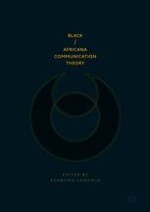Abstract
The impact of Western educational system, structure, content and style has immensely affected Black people ontologically and, to a painful extent, their epistemological world view. As a result, Africa has continuously been under-classed by the Western forces of darkness. Almost everything about the continent is categorized and schooled in the minds of both Africans and non-Africans as sub-standard and consequently, is in urgent need of help, repair and intervention from the West! This deliberate brainwashing and blatant distortion of a people’s history with arrogant impunity has rendered most Africans and Blacks today to become cultural mulattos because they are not only bombarded by shimmering Western materialism but buffeted from right to left by the West. Western forces on the continent are there in order to underrate and, in some cases, disregard our languages and culture because Africa, as they claim had no history (Curtin, General History of Africa I: Methodology and African Prehistory, 1, 54–71, 1981; Mazrui, The Africans: A Triple Heritage. Washington, DC: Little Brown & Company, 1986; Fuglestad, History in Africa, 19, 309–326, 1992; Charbonneau, Modern & Contemporary France, 16, 279–295, 2008; Nengwekhulu, Journal of Public Administration, 44, 341–363, 2009). To them, the only history Africa had was the history of colonization. This complete insult on a people’s origins has emasculated Africans of their dignity, and humanity, thereby de-Africanizing them of their culture and communication. They have become socio-cultural and communicative mulattoes on the continent and abroad. Right now, the refrain is “us” working with “them” to please them in order to survive. This should not be conflated with us vs them kind of tug of war battle to see the winner in the battle field rather it is the “usness” and “themness” (Langmia and Mpande, Social Media: Pedagogy and Practice. Lanham, MD: Rowman Littlefield, 2013) mentality ingrained in the minds of Africans that has made them become blind imitators of the West since they must crave to belong in order to be recognized. This imitation is what constitutes superficialities and artificialities in communication with one another using the colonizer’s language. But since nature and nurture are by themselves genetically ingrained in humans, Africans tend to still use their local languages in given settings for a desired effect, but increasingly, the volcanic neocolonial forces on the continent have created a situation of mélange or hybridity that could compound meaning exchange in the very communicative process. It is this process that I term the Afro-Cultural Mulatto Theory of Communication henceforth abbreviated as AMTC.
